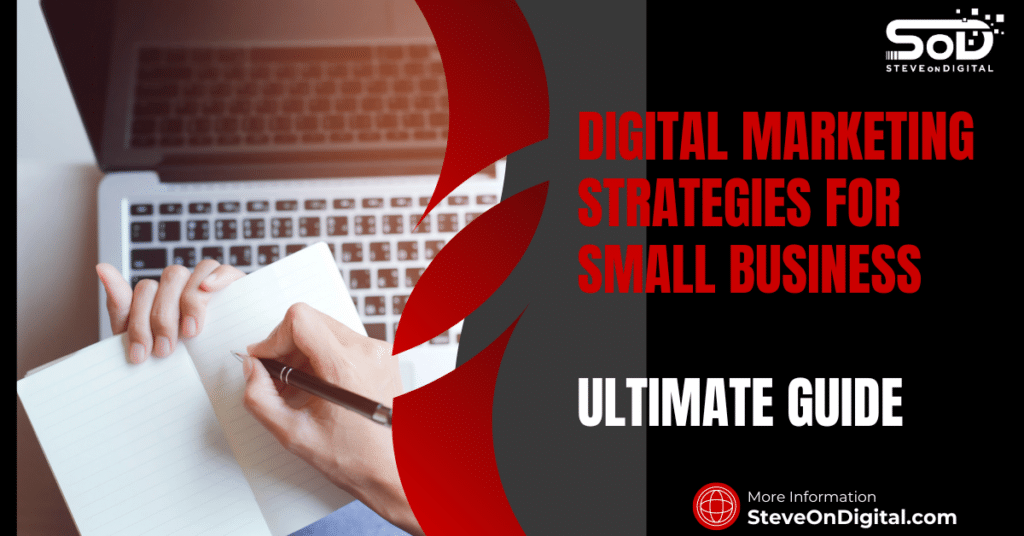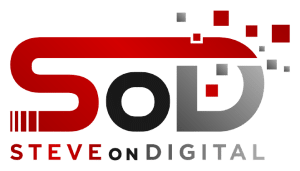Digital Marketing Strategies For Small Business | Ultimate Guide

Digital marketing encompasses all marketing efforts that use an electronic device or the internet. Businesses use the internet, like search engines, social media, email, and other websites, to talk to people who might buy their stuff, and to keep in touch with the ones who already do. For small businesses, it’s not just an option; it’s an essential way to reach your audience, execute marketing strategies effectively, and foster growth. Digital marketing has evolved from traditional methods to a complex ecosystem that enhances how businesses engage with their customer base. For me, Steve Johnston, diving into digital marketing was a transformation from traditional marketing methods to embracing technological advancements that empower small businesses to compete on a global scale. Importance Of Digital Marketing For Small Businesses Digital marketing offers small businesses a platform to compete with bigger competitors and reach a wider audience without needing a hefty budget. Benefits include increased visibility, higher website traffic, and improved conversion rates. From my experience, using digital marketing strategies effectively has led to noticeable improvements in sales and customer engagement without the overhead costs associated with traditional marketing. Crafting A Robust Digital Marketing Strategy Setting Foundations: Goals And Target Audience Identifying your target audience is the first step to creating an effective digital marketing strategy. Knowing what people like, how they act, and what bothers them helps you make your marketing fit exactly what they want. As a small business owner, I’ve found that setting SMART goals—Specific, Measurable, Achievable, Relevant, and Time-bound—provides a clear roadmap and measurable targets for our digital marketing efforts. Developing Your Digital Marketing Plan A successful digital marketing plan integrates various strategies to ensure a comprehensive approach to reaching your target audience. This includes using a mix of social media marketing, content marketing, SEO, and email marketing to create a diverse and robust marketing strategy. Leveraging digital marketing tools has been a game changer in how I plan and execute campaigns, providing valuable insights and analytics to refine strategies continually. By understanding the nuances of digital marketing and how to implement effective strategies, small business owners can maximize their potential to attract new customers, engage existing ones, and drive growth. My approach has always been to focus on creating high-quality content and leveraging digital tools to optimize every aspect of our marketing campaigns, ensuring every strategy is well-suited to the dynamics of today’s digital world. Strategy Benefits Tools Often Used SEO Increases organic reach and visibility Google Analytics, SEMrush Content Marketing Engages and retains customers WordPress, Canva Social Media Marketing Builds brand awareness and customer loyalty Hootsuite, Buffer Email Marketing Personalizes customer communications Mailchimp, Constant Contact Core Strategies In Digital Marketing Search Engine Optimization (SEO) SEO is the practice of optimizing your business website to rank higher in search engine results, thus driving more organic traffic to your site. As a small business owner, mastering the basics of SEO has been pivotal in increasing our website traffic and enhancing our online visibility. Key strategies that have proven effective include optimizing our site with relevant keywords and improving site speed and mobile responsiveness. Through diligent application of these tactics, we have seen a marked improvement in our search engine rankings, making it easier for potential customers to find us online. Content Marketing High-quality content is the backbone of any successful digital marketing strategy. It not only helps attract customers but also retains them by providing helpful information and engaging experiences. Over the years, I have focused on creating content that resonates with our target audience, from informative blog posts to interactive videos. This approach has significantly boosted our ability to engage existing customers and attract new ones by delivering valuable content that meets their needs. Social Media Marketing Social media platforms are an essential tool for building a strong online presence and engaging directly with your audience. I have utilized various social media channels to share content, announce new products, and engage in real-time with our community. Creating compelling social media posts and running targeted social media ads have been crucial in enhancing our brand’s online presence and engaging with the community. These efforts have allowed us to foster a strong social media presence, helping drive website traffic and increase sales. Email Marketing Email marketing is a powerful tool for small business marketing, allowing for direct communication with potential and existing customers. It has been instrumental in nurturing leads and converting them into loyal customers by providing them with targeted information and offers. Best practices I’ve adopted include personalizing emails and segmenting our audience to ensure the right messages reach the right people. Through effective email marketing campaigns, we have been able to maintain a direct line of communication with our customers, driving both engagement and sales. Advanced Digital Marketing Techniques Paid Advertising And Google Ads Paid advertising, particularly pay-per-click (PPC) campaigns, is a crucial component of digital marketing strategies for small business. As a small business owner, I’ve leveraged Google Ads to specifically target prospective customers who are searching for services we offer. This direct approach helps in driving targeted website traffic quickly and effectively. Designing effective ads involves understanding the target customer’s needs and crafting messages that resonate with them. Using relevant keywords and a clear call-to-action has significantly increased our click-through rates and driven more conversions. From my personal experience, continuous testing and adjustment of ad copy and targeting options are vital to optimize the performance and ROI of your PPC campaigns. Video Marketing Video marketing has become an indispensable part of a strong online presence. The ability to convey complex information in an engaging and digestible format makes video a powerful tool to attract customers. As someone who has integrated video content into our digital marketing efforts, I’ve seen firsthand the impact of sharing helpful information and personal stories through video. Tips for creating impactful video content include focusing on storytelling, maintaining high-quality production, and ensuring content is informative and directly beneficial to the viewer. Using videos on social media platforms and our business website

